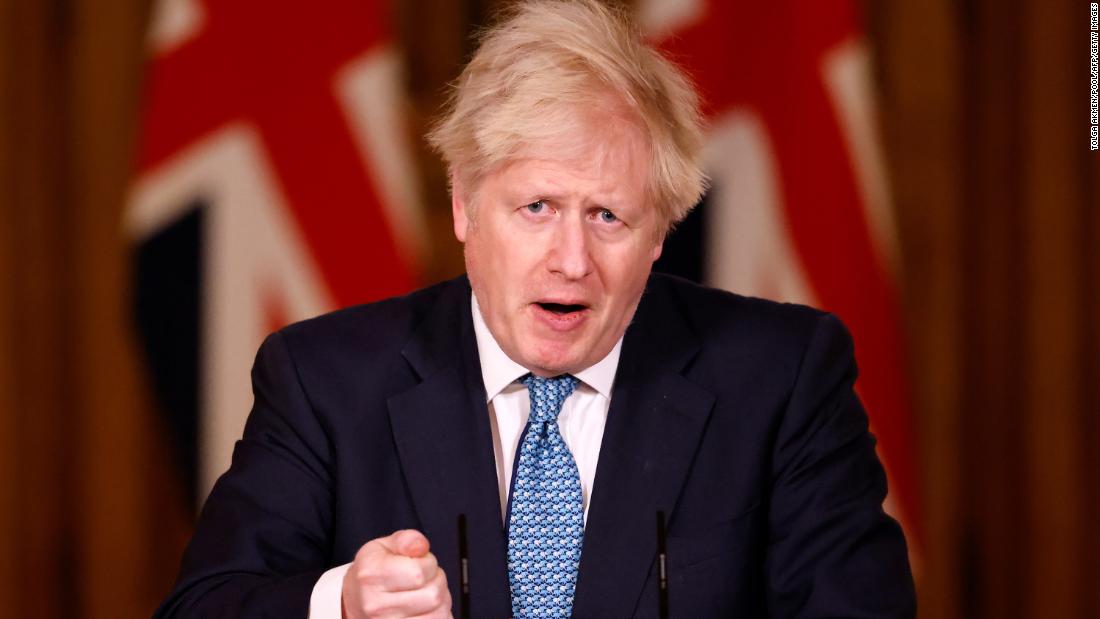
A deal is expected to be announced on Christmas Eve, a UK government source and European diplomatic source told CNN. News of a possible deal was also reported by the UK news agency PA Media.
The announcement would come before the December 31st deadline.
A senior source at No. 10 Downing Street told CNN that the British cabinet was informed of the negotiations late Wednesday night. Following that briefing, the source told CNN, “Expect discussions on the legal text to continue into the early hours.”
European Commission chief spokesman Eric Mamer then hinted that final details are being ironed out. At around midnight local time, he tweeted, “#brexit work will continue all night long. At this point, some sleep is advised to all Brexit watchers. Hopefully it will start early tomorrow morning …”
Earlier on Wednesday, a No. 10 adviser told CNN that the talks “were in motion but not yet there.” An EU diplomat agreed, telling CNN on Wednesday that there could be a deal “today or tomorrow, but it wasn’t there yet”.
Any possible deal would then be ratified before taking effect on January 1, 2021, when the Brexit transition period ends and the UK will no longer be subject to EU rules.
There were once concerns that the deal would not be ratified before the transition period had expired; However, European institutions, including the European Parliament, have agreed to sit extra hours by the end of the year to get the agreement approved on time.
Fears of possible delays in deal approval in time for the end of the transition period have been largely allayed by the fact that it is largely possible to provisionally execute trade agreements before ratification, meaning that in the worst case the most serious damage can still be avoided.
The news of a possible deal comes against the background of rising coronavirus cases in the UK. Meanwhile, thousands of trucks from across Europe were stuck in the English port of Dover for a third day following the now-lifted closure of the border by France due to a potentially more contagious variant – a preview of the kind of border chaos that could have resulted in a “no deal.” Brexit.
But the breakthrough marks a major milestone in the saga that began when the UK voted to leave the EU in 2016.
The Brexit debate continues
In the UK itself, it is unlikely that an agreement will end the years of toxic political debate over the country’s relationship with Europe.
Euroskeptic lawmakers are already organizing efforts to ensure that a deal leaves no room for the UK to drift back into the EU’s orbit. Pro-Europeans, meanwhile, will be hopeful that the UK, perhaps under new leadership, will be able to strengthen ties with Brussels at some point in the future.
Without a trade deal, UK companies would lose tariff- and quota-free access to the EU market of more than 400 million consumers, who buy nearly half of the country’s exports and account for a similar share of imports. For the EU, the UK is much less important, with only 4% of the bloc’s exports in 2019 and 6% of its imports.
Earlier this month, the prime minister insisted that no matter what the deal looked like, the UK would “thrive as an independent nation”.
While any deal would likely be less economically damaging than no deal at all, the UK will still be poorer in the long run than if it had stayed in the EU, the independent body producing economic forecasts for the government said in November.
For now, neither side is in the mood for more negotiations after years of painful disagreement.
Hanna Ziady contributed to this report.